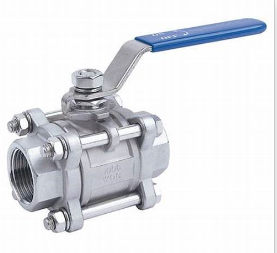Understanding the Functionality and Applications of Metallic Expansion Bellows in Engineering Design
Understanding Metallic Expansion Bellows
Metallic expansion bellows are specialized devices designed to absorb thermal expansion and contraction in piping systems. These components are critical in industries such as oil and gas, petrochemical, power generation, and HVAC (heating, ventilation, and air conditioning), where temperature fluctuations can result in significant strain and even damage to pipelines and associated equipment.
Basics of Thermal Expansion
Metals, like most materials, expand when heated and contract when cooled. In piping systems, this thermal expansion can lead to excessive stress on the pipes, flanges, and joints. Over time, such stress can cause fatigue, leading to leaks, ruptures, or catastrophic failures. To mitigate this risk, engineers integrate expansion joints, such as metallic bellows, into the system design.
What Are Metallic Expansion Bellows?
Metallic expansion bellows, often referred to simply as bellows, are flexible, accordion-like structures made from thin-walled metallic materials. They can absorb movement caused by thermal expansion and contraction, as well as vibrations and misalignments. The unique design allows them to accommodate axial, lateral, and angular movements within the piping system, providing a reliable solution for managing thermal stresses.
Design and Materials
The design of metallic expansion bellows involves engineering considerations such as the expected range of motion, pressure ratings, and the specific operating environment
. The materials used for bellows typically include stainless steel, which offers excellent corrosion resistance and strength, or other high-performance alloys chosen based on temperature and chemical exposure.metallic expansion bellows

The manufacturing process of metallic bellows may involve methods such as welding, forming, and heat treatment, allowing for high precision in the dimensions and performance characteristics. Many bellows will also feature a protective outer layer or coating to enhance their durability in harsh environments.
Applications of Metallic Expansion Bellows
Metallic expansion bellows find applications in various fields. In the oil and gas industry, they are used in pipelines to accommodate thermal expansion and provide flexibility at junctions and bends. In power plants, they play a vital role in connecting different components of steam and gas systems without transmitting stress.
HVAC applications often utilize bellows to accommodate movement in ductwork and piping systems while maintaining efficient airflow. Furthermore, in the pharmaceutical and food industries, they are essential for keeping processes sterile and preventing contamination, as their design helps to minimize dead spots in fluid flow.
Advantages of Using Metallic Expansion Bellows
1. Flexibility One of the primary advantages of metallic bellows is their ability to flex and absorb movements, which helps protect the integrity of the piping system. 2. Durability Made from high-quality metals, they withstand harsh operational conditions, including high pressures, extreme temperatures, and corrosive environments. 3. Installation Versatility Bellows can be easily installed in various positions and orientations within piping systems, making them a versatile choice for engineers. 4. Maintenance and Reliability Once installed, metallic expansion bellows typically require minimal maintenance, contributing to the overall reliability of the system.
Conclusion
Metallic expansion bellows are indispensable components in modern industrial applications. By providing a reliable means to handle thermal expansion, they protect pipelines and equipment from the damaging effects of temperature fluctuations. Understanding their design, materials, and applications allows engineers to make informed decisions about their integration into various systems, ensuring safety and efficiency in operations. As technology evolves, we can expect further advancements in the design and application of these critical components, enhancing the performance and reliability of industrial processes across multiple sectors.
-
The Key to Fluid Control: Exploring the Advantages of Ball Valves in Industrial SystemsNewsJul.09,2025
-
The Versatile World of 1, 2, and 3 Piece Ball ValvesNewsJul.09,2025
-
Stainless Steel Ball Valves: The Ideal Choice for Efficient Flow ControlNewsJul.09,2025
-
Optimizing Fluid Control with Ball Float ValvesNewsJul.09,2025
-
Manual Gate Valves: Essential for Control and EfficiencyNewsJul.09,2025
-
Everything You Need to Know About Butterfly ValvesNewsJul.09,2025
-
The Versatility of Wafer Type Butterfly ValvesNewsJul.08,2025




